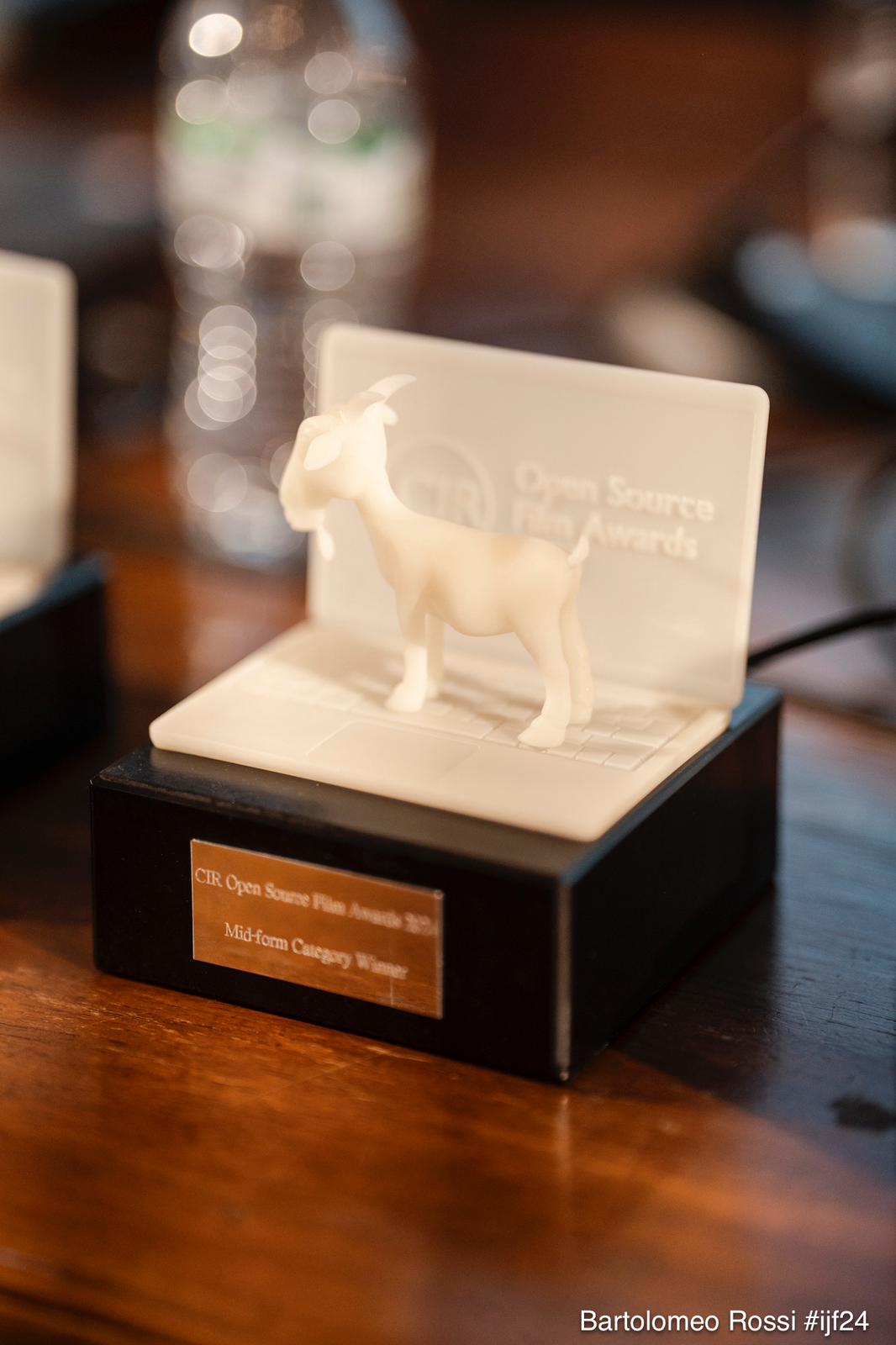The Centre for Information Resilience’s inaugural Open Source Film Awards took place on 18th April at the International Journalism Festival in Perugia.
Below is the speech delivered at the awards by Ross Burley, CIR’s co-founder.

“Ladies and gentlemen, it is my pleasure to welcome you all to the first ever Open Source Film Awards.
I’d like to take this opportunity to thank the International Journalism Festival for this brilliant opportunity.
I’m Ross Burley, one of the two co-founders of the Centre for Information Resilience. For those of you who unfamiliar with us, we’re a non profit, based in London but international in character and focus.
We use digital investigations and open source techniques to expose disinformation, war crimes and human rights abuses.
When Adam and I started CIR in the midst of the pandemic, we had two aims.
The first: to get policymakers to recognise the scale of the challenges around disinformation, influence operations and hybrid warfare.
The second, to help build a collaborative, supportive community. Journalists and academics, filmmakers and public servants, civil society actors and investigators, all working together to tackle the problem.
Whether it’s a regime thousands of miles away committing war crimes, or a political actor closer to home using disinformation to achieve power, no one organisation or individual can act alone to counter wrongdoings. It takes a community to stand together.
As a relative newbie back in 2020 to open source, I have been awed by the collaborative, supportive spirit of the open source community – journalists, hobbyists and pros alike. It really is unique.
Working together in this brilliant community, we have at our disposal incredibly powerful tools. Geolocation. Chrono location; unencrypted communications, CCTV, satellite analysis and dozens of other digital resources – open to all.
The power of open source is in the name: open. Our work is transparent. If a regime rails against our investigation into a massacre – well, be our guest – check our working. It’s open. In a world of disinformation, our collective strength is the existence of objective truth.
While investigating wrongdoing can be done with open source, to expose it, to hold it to account, requires another skill: storytelling. The truth is muted without having the power to tell it.
Yet again, the strength of our community is the diversity of those within it and the brilliant range of skills they bring.
While the written word can often powerfully convey the findings of a digital investigation – think of the flagship MH17 Bellingcat investigation and the achingly moving description of the field in which the plane came down – there is a certain special alchemy between open source and film. Films show and tell the power of open source.
They can feed our imagination and build drama with investigations, bringing them alive for audiences.
It’s there for all to see in our submissions.
I and the rest of our amazing jury have been staggered by the quality, commitment and power of the films submitted.
They are a testament to both how journalism has embraced open source, and how the wider community has taken inspiration from storytellers to bring investigations to life.
A common theme of the brilliant films submitted for the awards has been their ability to tell human stories.
That, despite the methodical, detailed investigative techniques deployed to expose objective truth, at their heart these investigations are about people.
People who’ve been trafficked, people who’ve been sexually abused, people who’s been tortured, people who’ve lost those closest to them. It’s their truth our filmmakers have exposed.
And that’s the real power of open source.”
